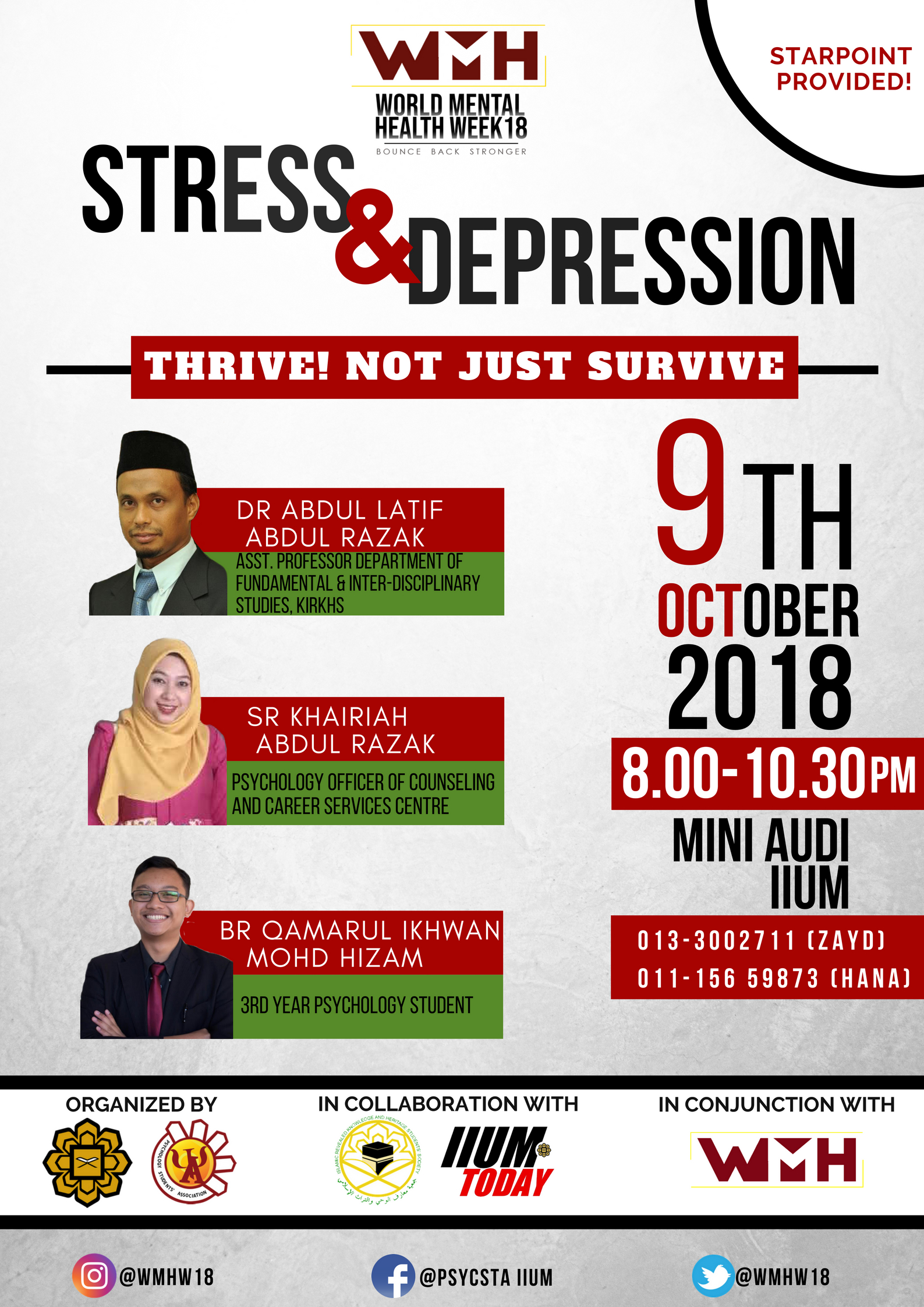By Nor Hazimah Izzati Zul
GOMBAK, 12 October 2018: Mentally stressed and emotionally depressed! That is how most students seemed to describe how they felt having to go through their daily life in campus. Perhaps that in itself explained the reason the forum on the topic œStress and Depression: Thrive! Not Just Survive held recently at Mini Auditorium drew full attendance among the students.
The forum, which was conducted in conjunction with World Mental Health Week 2018, was organised by the Secretariat of Psychology with the objective to educate the students and create awareness among them on mental health issues, including stress and depression.
Two speakers were featured at the forum – Dr. Abdul Latif, the Assistant Professor at the Department of Fundamental and Inter-disciplinary Studies, Kulliyyah of Islamic Revealed Knowledge and Human Sciences (KIRKHS), and Khairiah Abdul Razak, a psychology officer of Counselling and Career Services Centre, IIUM.
In the forum moderated by Qamarul Ikhwan Mohd Hizam, an IIUM psychology student, the questions raised by the students to the panelists revolved around the symptoms and solutions of stress and depression.
Dr. Abdul Latif, in his response spoke about the importance of solat and how “we could find relaxation while performing the ‘solat’. He said that Rasullullah was in deep sadness following the death of his beloved wife and that was also revealed through the obligation of solat.
He gave his view on depression from the Islamic perspective emphasising the religious faith and citing that œthe umbrella of depression and stress lie in anxiety”. He said, “There are many terms in the Al-Quran that refer to depression. And the word ˜fear in the al-Quran refers to pure fear and anxiety.
He highlighted, œPertinent symptoms of depression are sadness and feeling down.
On the other hand, Khairiah elaborated how stress differs from depression. She said, œDepression is a disorder. Stress could be positive or negative, but depression could only be negative. However, positive stress could motivate you to work harder.
She emphasised what could be done when one has detected the symptoms of depression. She said, œYou need to seek help and meet the counsellor. You need to ask for help from the professionals.
Students were therefore encouraged to meet her and her team for counselling sessions. To avoid from getting depression, Khairiah highlighted on the importance of self-control. œYou need to communicate with your mind like how you communicate with your friends, she added. ***

